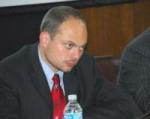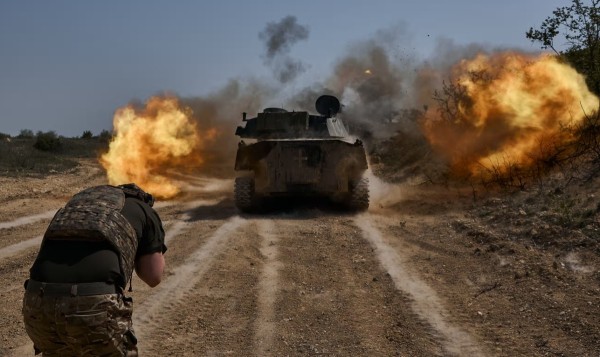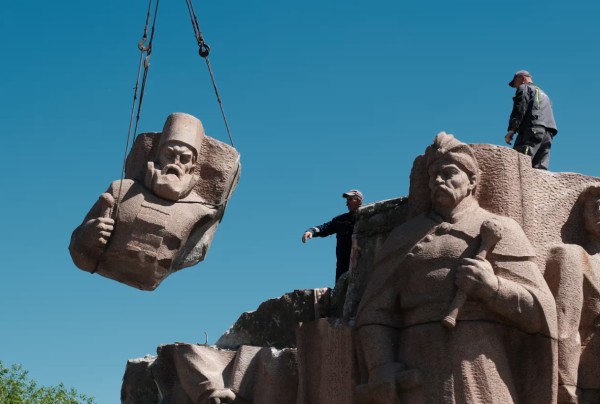
On March 4, 1979, citizens of the USSR went to the polls to elect the Supreme Soviet, on paper the country’s most important governing body. According to the official returns, 99.89 percent of the votes were cast for candidates of the Bloc of Communists and Non-Party Members, who ran unopposed in every district. At its first session, the new Supreme Soviet formally re-elected Communist leader Leonid Brezhnev—who was overwhelmingly returned in Moscow’s Baumansky district—as the USSR’s head of state.
http://www.worldaffairsjournal...
The world media treated the occasion for what it was, appropriately placing the word “campaign” in quotation marks and emphasizing that the vote was a “one-slate election.” Not a single congratulatory call was placed to Brezhnev from any Western leader—not Jimmy Carter, not Helmut Schmidt, not Valéry Giscard d’Estaing, not any other. All of them dealt with Brezhnev; many considered it necessary to expand dialogue with the Soviet leadership; some were criticized by their domestic opponents for being too eager to compromise with the Kremlin. But none chose to dignify (and legitimize) the Soviet electoral charade by congratulating its preordained winner.
Today’s Russia is not the Soviet Union, for many reasons. But the presidential election of 2018 gave Russian citizens no bigger say in the affairs of their country than the Supreme Soviet election of 1979. To be sure, the presentation was better. Grigory Yavlinsky, a veteran liberal politician, described the current political regime in Russia as a “post-modern” dictatorship (perhaps the best description offered for Vladimir Putin’s system.) The current occupants of the Kremlin are more clever and more creative than their Soviet predecessors in maintaining appearances—but the authoritarian essence is the same. The ballots in Soviet “elections” literally had one name on them; the ballots on March 18 appeared to have eight (ironically, including Yavlinsky himself)—but, in reality, there was still only one. Of the two most prominent Kremlin opponents, neither was on the ballot: Boris Nemtsov because he was killed, Alexei Navalny because he was barred from running. And if there was ever any space for surprises among the officially permitted field, it was taken care of by one-sided television coverage, ballot-stuffing, coerced voting by state and municipal employees, and other customary vote-getting techniques.
“Choice without real competition, as we have seen here, is not real choice. Where the legal framework restricts many fundamental freedoms and the outcome is not in doubt, elections almost lose their purpose.” Such was the scathing verdict from Michael Georg Link, head of the observer mission from the Organization for Security and Cooperation in Europe (OSCE) that went to Russia to monitor the election. Link is a seasoned German politician and a member of the Bundestag, so it is somewhat ironic that the leaders of Germany were among the first to place congratulatory calls to the Kremlin. Both Chancellor Angela Merkel and President Franck-Walter Steinmeier congratulated Putin on his “re-election”, with Steinmeier adding congratulations “to the citizens of the Russian Federation.” French President Emmanuel Macron, European Commission President Jean-Claude Juncker, and others Western leaders followed. On its website, the Kremlin proudly listed the heads of state and government from democratic nations who called to offer congratulations.
Among them was U.S. President Donald Trump, who followed a long-standing bipartisan tradition on congratulating Putin with winning pre-orchestrated “elections”, but on this occasion apparently contradicting the explicit advice from his national security team. At a subsequent press briefing, his spokesperson Sarah Huckabee Sanders—answering the plainly-put question of whether the White House believes “that the election in Russia was free and fair”—asserted that “we don’t get to dictate how other countries operate... we can only focus on the freeness and the fairness of our elections.”
Indeed, no one gets to dictate “how other countries operate.” But—unless the United States is about to abrogate the Helsinki Final Act and withdraw from the OSCE—it is a fundamental principle of that organization that “issues relating to human rights, fundamental freedoms, democracy and the rule of law… are matters of direct and legitimate concern to all participating states and do not belong exclusively to the internal affairs of the state concerned.” This includes, of course, election standards that are clearly articulated in the OSCE Copenhagen Document—and that were clearly violated by the Russian authorities.
Western leaders do have to speak with the Kremlin; many are ready to seek compromises; and some prefer to engage in realpolitik, foregoing their “direct and legitimate concern” over violations of OSCE norms in Russia. But the least that should be expected from the leaders of democratic nations is that they do not explicitly congratulate a dictator on a sham election victory. By doing so, as Sen. John McCain (R.-Ariz.) pointed out in his statement, they have “insulted every Russian citizen who was denied the right to vote in a free and fair election.”


























